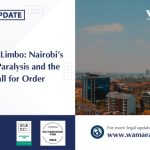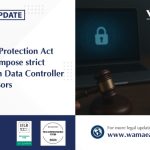The former Chief Justice, Dr. Willy Mutunga firmly stated in the year 2012, that colonial mindsets have persisted, in the executive, the legislature and, unfortunately, even in the judiciary, even after independence. In a bid to promote progressive jurisprudence in the country and to heed to the advice of the former Chief Justice, a three-judge bench in Kisumu Constitutional Petition No.7 of 2018 – Charles Nyaoke vs. Cabinet Secretary, Ministry of Interior & Co-Ordination of National Government & Others has ruled that the statutory requirement of trying murder cases in the High Court is a historical and colonial accident that cannot be justified in this modern-day age. The resultant effect is that Murder cases ought to be tried in the first instance at the Magistrate’s Courts.
The original petitioner in the case herein, Mr. Stephen Nyakwaka, who died during the pendency of the suit and was later on substituted by Mr. Charles Henry Nyaoke, brought a petition before the High Court at Kisumu alleging, amongst others, that section 3, 4 and 5 of the Criminal Procedure Code Cap 75 violated his rights guaranteed under article 27, 48 and 50 of the Constitution. In particular he alleged that the requirement to charge Murder cases in the first instance before the High Court and not the Magistrates Court was discriminatory contrary to article 27 of the Constitution and in addition was a breach of his right of access to justice and fair hearing guaranteed under article 48 and 50 of the Constitution respectively.
The Petition was vehemently opposed by the Respondents who included the Cabinet Secretary, Ministry of Interior and Co-ordination of National Government, the Attorney General, the Director of Public Prosecutions and the Kenya Law Reform Commission. They pleaded amongst other the things that the Petition was barred vide the principle of Res Judicata and that there was no breach of any Constitutional provisions.
In delving into the matter, the Court narrowed down to 6 main issues for determination. However, this article will deal with the 2 main issues that were the substance of this petition.
The first substantive issue was whether the initiation of murder trial in the High Court violated the Constitution. The Court in analysing this issue echoed the words of Justice Chacha Mwita in Jack Mukhongo & 12 Others -vs- Attorney General & 2 Others [2017] eKLR and held that when analysing the legitimacy of a particular statute, the Court ought to look at all factors including the history of the legislation and the circumstances in which it was made. It is with this jurisprudential argument that the 3 Judge bench looked at the history of Section 4 and 5 (2) of the Criminal Procedure Code and held that the same was arbitrary and unjustifiable in the current modern context. They termed it as a historical accident.
The Court further interrogated the procedures provided for prior to 2003 which included committal proceedings and the mandatory requirement for trial with the aid of assessors and held that the same have now been done away with due to the unreasonable delays and injustice they occasioned. The court further held that there is no special reason to justify murder cases being tried in the High Court whilst other criminal charges are tried in the Magistrate’s Court. The Court found that the necessity of trying murder cases in the High Court was a result of colonial expediency and there is no legal justification or logic to continue with the same.
The second substantive issue that was analysed by the Court was whether there was denial of one crucial step of appeal. The Court adopted a textual and pragmatic analysis of Article 50 (2) (a) which provides for the right to appeal or apply for review by a higher Court as prescribed by law. The Court found that indeed a disadvantage is occasioned because initiating a murder trial at the High Court denied a murder convict a vital step in the appellate chain hence a breach of the non-derogable right to fair hearing.
The Court further pragmatically analysed the current legal situation and held that there are 125 Magistrates’ Courts with 447 magistrates compared to only 82 Judges hence initiating murder trial at the Magistrates’ Courts will lower the costs of trial, reduce the distance to Court and expedite delivery of justice.
However, there is need to note that the 3 Judge bench held that there are still certain cases which should ideally be tried in the first instance at the High Court. These cases include high crimes against the state such as treason and related insurrection.
In addition, there are other types of cases that fall under this category and they are found under section 6 of the International Crimes Act. These include; genocide, crimes against humanity and war crimes. The Court in its reasoning stated that trying such cases in the High Court would not amount to discrimination firstly because not all differentiation amounts to discrimination and secondly that article 27 which prohibits discrimination is not an absolute right. The Judges relied on the cases of James Nyasora Nyarangi & 3 others v Attorney General [2008] eKLR and Peter K Waweru v Republic, [2006] eKLR in coming to this conclusion.
It is in this regard that Justices Lesiit, Kimaru and Kimondo held that the Respondents should within 18 months align the Criminal Procedure Code with the Constitution. As Henry Maine, a British jurist and legal historian put it; the law is stable; the societies we are speaking of are progressive. This is a win for common mwananchi as access to justice has been brought closer to them and the costs of getting justice will greatly be reduced.
This article is provided free of charge for information purposes only; it does not constitute legal advice and should not be relied on as such. No responsibility for the accuracy and/or correctness of the information and commentary as set out in the article should be held without seeking specific legal advice on the subject matter. If you have any query regarding the same, please do not hesitate to contact Caxstone Phelix Kigata vide Caxstone@wamaeallen.com
About the author
Caxstone specializes in civil, employment and labour disputes, constitutional law, family law and succession, and environment and land matters. He has amassed a wealth of knowledge and experience in litigation which is evident in the successes obtained for clients. He is an active member of the Employment and Labour Relations Court Bar-Bench committee.











